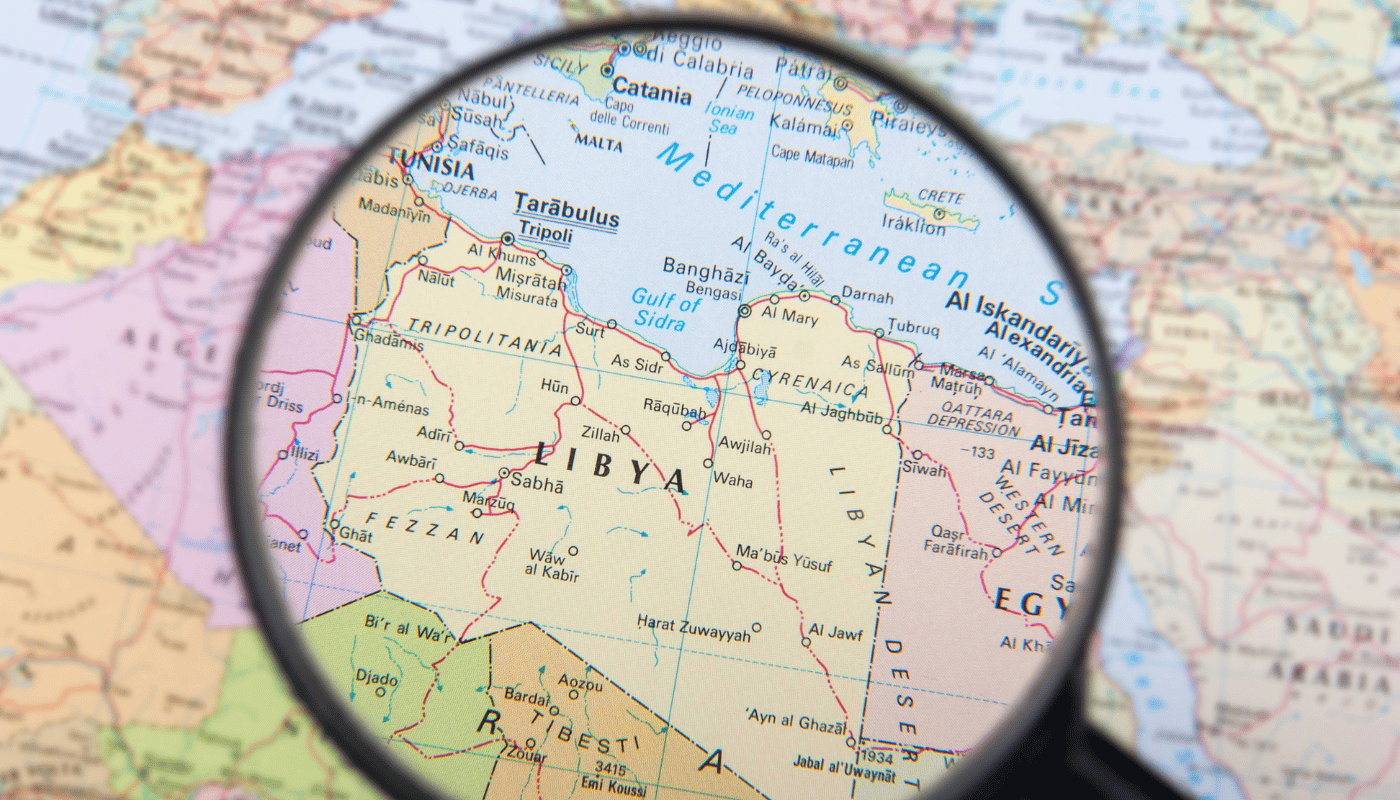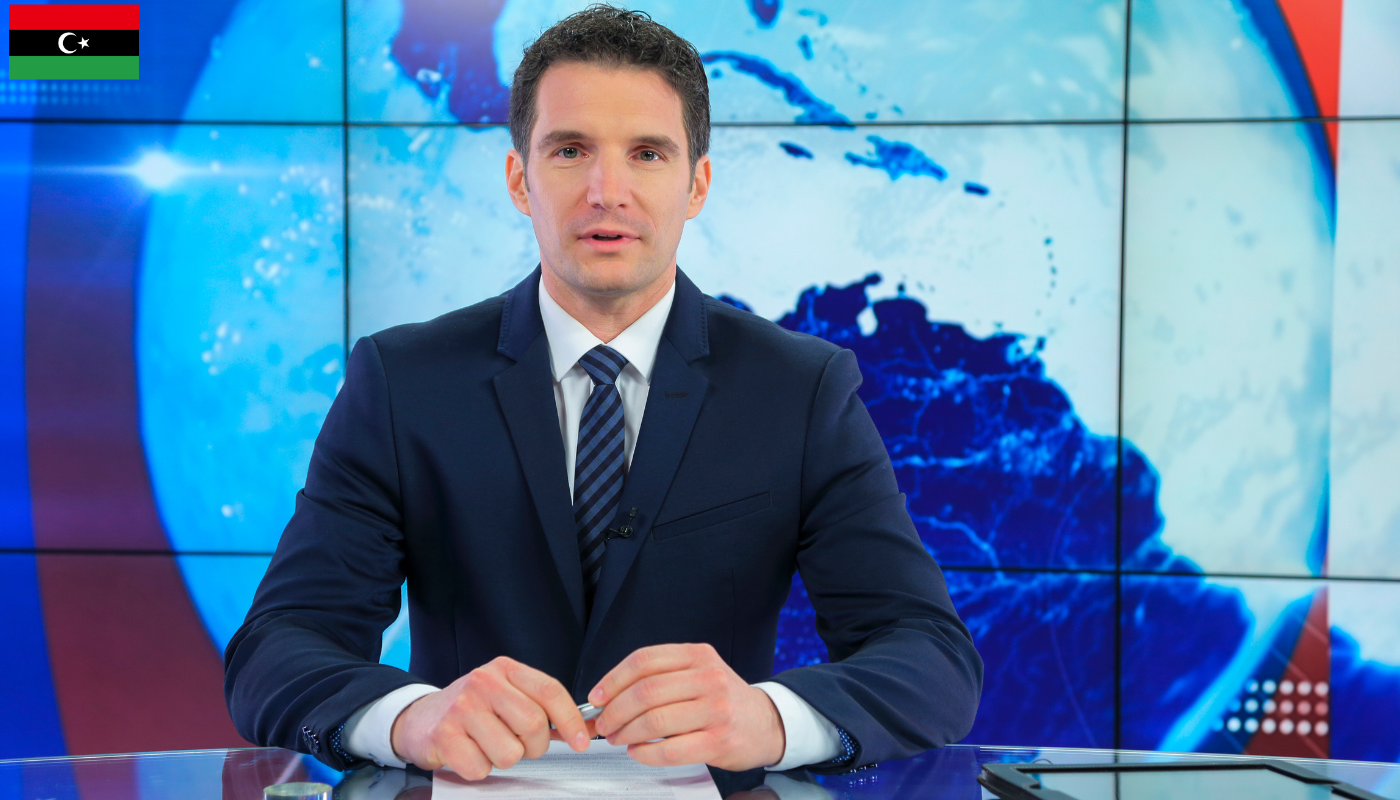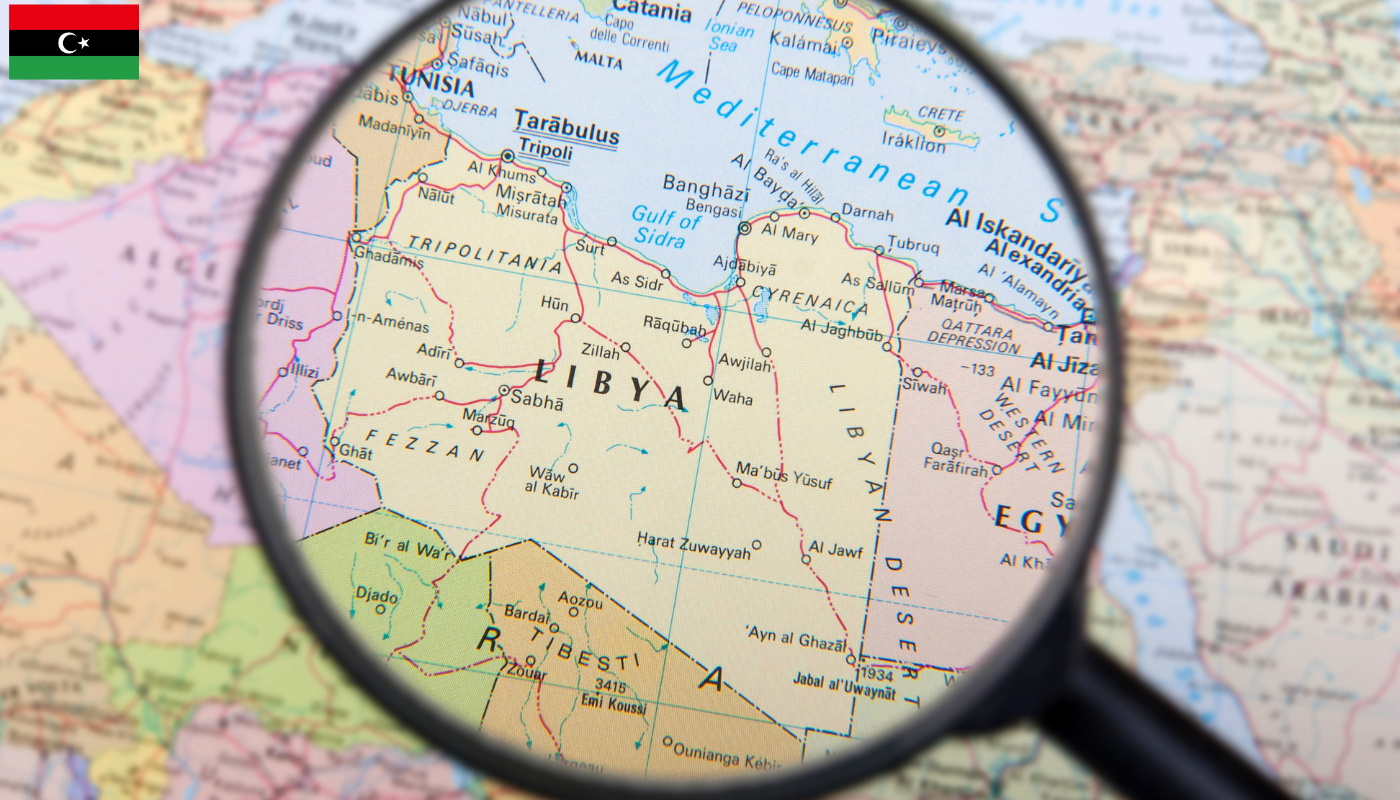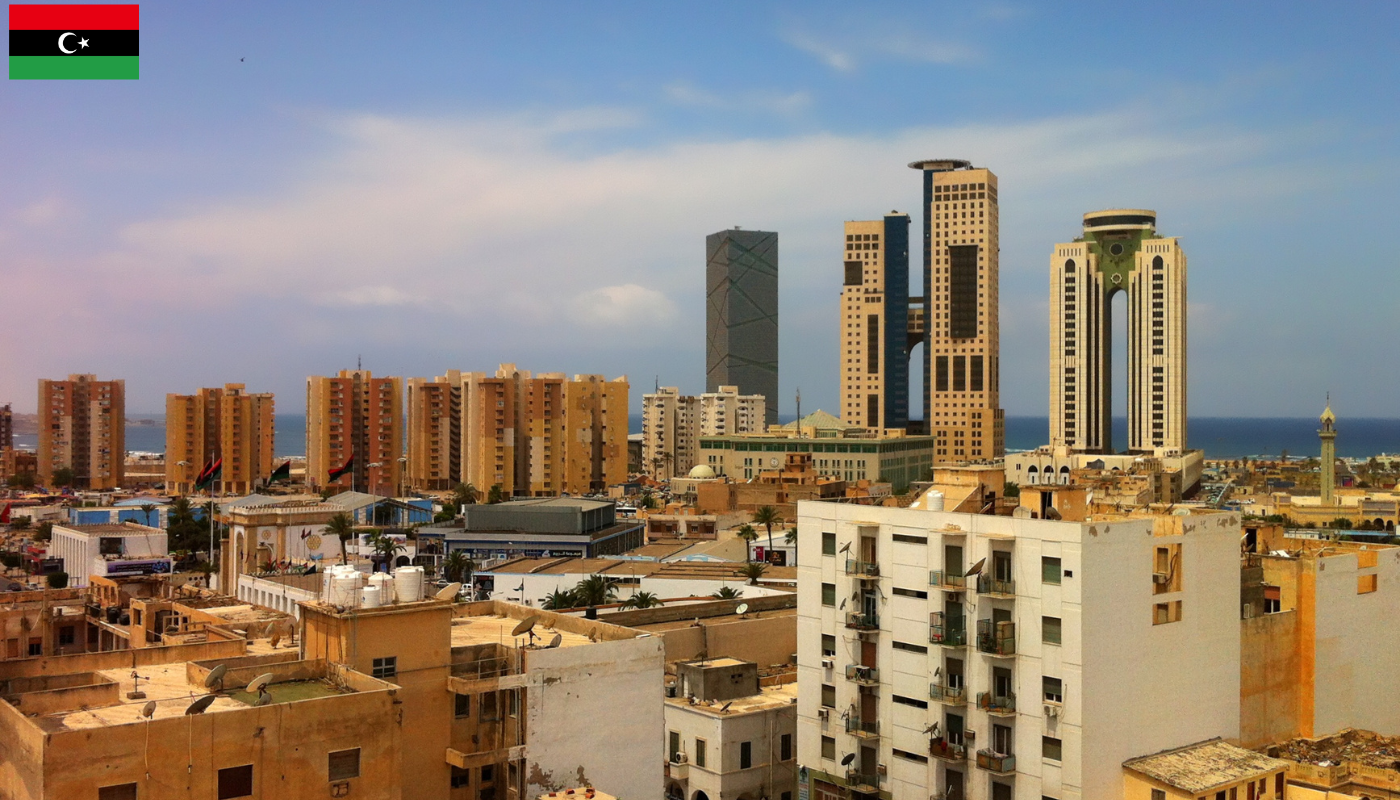We won’t be able to comprehend what is happening in Libya unless we abandon the circulating myths and misconceptions.
Last week a number of social networking websites shared a recording of a figure of a Libyan tribe, in which he discussed how the Al-Magharba tribe has the oil, the Al-Obeidat tribe has the House of Representatives (HoR), and the Al-Bra’asa tribe controls the government, leaving his tribe with the Ministry of Death (Ministry of Defense). This proves that for the past five years of constant struggle, the core issue has been a tribal conflict over controlling positions of power in the country. There is no conflict between political groups or between extremists and moderates or even between Islamists and liberals. And even if these conflicts exist, their influence on current events is minimal and is only used to mask the real reasons behind the conflict.
A political analyst explained to me over the phone from Tripoli that the media played a huge role in putting ideology-based conflicts on the forefront of Libyan news, unable to cover the actual root and cause of the problem, which is tribes competing for resources. A competition masked by political slogans and expressed by competing for government positions and weapons.
Cairo witnessed firsthand the effects of such struggles. Both the Al-Bra’asa and Al-Dresa tribes fought over the position of Libyan Ambassador in Egypt; it appears that the president of the Tobruk government was under pressure from both tribes and met both of their demands. The Al-Bra’asa appointed its son Tareq Steif Al-Bara’si, the embassy’s financial auditor, as the ambassador. The Al-Dresa chose Mohammad Saleh Al-Dresi, the consul in Alexandria, for the same position. As a result, one commenced work from the embassy’s office in Al-Zamalek in Cairo, and the other from the Arab League offices in A-Duqqi, also in Cairo.
The conflict didn’t just stop there; the Foreign Ministry headquarters was attacked in Al-Baida, the Deputy Minister Hasan Al-Saghir was kidnapped, and the Foreign Minister, Mohammad Al-Dairi, was beaten.
Another myth circulating in light of the Western/Eastern conflict is the denial of the ongoing events in the South. Numerous fights have occurred between the Tuareg and Al-Tabu tribes, who seek control over smuggling routes. More importantly, the struggle in the west between Misrata and Al-Zintan is still ongoing, as well as in the East between the Al-Awageer tribe and a few tribes from Barqa alongside Haftar-supporting groups.
Reports concerning the situation in the East suggest that certain areas are demanding to be converted into self-governing municipalities, following in the footsteps of Jardas Al-Abeid, which successfully turned into a municipality. This caused the Al-Bra’asa to demand the conversion of 24 areas on the outskirts of Jardas Al-Abeid into municipalities, even though their collective population is under 15,000.
The Libyan political analyst suggested two real reasons behind the Eastern/Western situation. The first being when Haftar wanted to defeat the Al-Zwayya tribe in the southeastern region; he cooperated with the Justice and Equality Movement (JEM) in Darfur and with a few from Al-Tabu tribes in the south, which has influences in Chad and Niger. This occurred in the East, and the West had nothing to do with it. According to reports released by the UN, Sudanese President Omar Al-Bashir spoke about Sudanese mercenaries from JEM participating in the Libyan conflict in 2014 and 2015.
The second reason is that media outlets have regularly covered Haftar’s campaign against the so-called extremists in the West, at a time when the Al-Tawheed Brigade, part of Haftar’s army, is regarded as one of the extremist groups Haftar and the media claim to be fighting against.
Individuals and groups that support the Libyan National Army are rooting for nothing but a lie; Gaddafi destroyed the army and disorganized its components. Only a few units survived, a quarter of them located in the East and the rest divided between the West and the South. Major General Youssef Al-Mangoush, the former Commander in Chief, who resigned in 2013 upon realizing the difficulty of rebuilding the army due to various interventions and pressures, confirmed the division of the military. This was affirmed by Colonel Faraj Al-Bra’asi’s statement, which can be found on YouTube, where he specifically stated that Libya does not have an army, only “leftover crumbs of an army,” 20% of which are actual trained soldiers. I met with Colonel Al-Mangoush in Istanbul, his new place of residence after his resignation. He knew the full story of the Libyan Army like the back of his hand, from its formation in Egypt in the 1940s with the beginning of WWII to how Gaddafi destroyed it after an attempted coup in 1975 by removing the ranking system and promoting 10 soldiers to Colonel all at once in 2009 based solely on his decision.
When I asked him about the National Army Haftar keeps referring to, he concluded by stating it was not a National Army. He explained that the whole operation was a political movement and had nothing to do with military procedures. The army Haftar refers to is led by civilians, mostly volunteers, mercenaries, and ex-prisoners.
It is to be noted that Haftar’s army consists of two questionable brigades: one with a Salafi background called Al-Tawheed, and the other named Awliyaa Al-Dam (Guardians of Blood). Therefore, it’s quite difficult to refer to it as an army; it is a collective of militias cooperating with Haftar or have been paid for by foreign accomplices, hoping to achieve personal goals irrelevant to the situation in Libya.
When I mentioned that the media talked about how the army was influential in defeating the Islamic State (IS) in Derna and causing them to retreat from the city, he denied it all, stressing that it was nothing but lies. The reason the IS was removed from Derna was due to local armed forces represented in the Local Revolutionary Council. Afterward, the remaining IS troops fled to Sirte in the west on 80 vehicles, crossing over 120 km in open land where Haftar did not order any air strikes. However, he did attack the Revolutionary Council, who were the main force behind the IS’ defeat. I asked: how do you explain Haftar’s actions? He said Haftar is a power-hungry character; he wants to make himself the new “Gaddafi,” above the law and everyone. He is resorting to various tactics and using all forms of torture and violence to silence those who oppose him. Unfortunately, he is supported regionally by countries that wish to destabilize the revolution in the name of the fight against terrorism.
On Tuesday, the 14th of June, Al-Awageer held a meeting where they discussed three individuals: Faraj Egeim, the Anti-Terrorism Forces Commander; Salah Bulgheib, the head of Military Intelligence; and Mahdi Al-Barghathi, the Minister of Defense in the Government of National Accord (GNA). The meeting was recorded, and the pressing issues of Benghazi were examined. Haftar, with the help of his assistant Abedrazzaq Al-Nadhouri, was accused of developing militias aimed at executing any opposing groups. Sixteen people involved in these executions have been arrested in Bel-Oun in Benghazi.
In the meeting, Al-Awageer also confirmed that they have 137 cases of assassinations caused by these militias. They discussed a prison operated by Al-Nadhori, where six Benghazi nationals torture and execute prisoners, in addition to Haftar’s men dealing in weapons and ammunition smuggled through open borders and Tobruk’s port. Moreover, over 58 million Libyan Dinars have disappeared from AL-Wahda Bank. The incidents mentioned by Al-Awageer also included Libyan activists demanding political favors, which the HoR grants through Haftar’s influence. Some of these demands include the cancellation of the Ministry of Defense and appointing Haftar as Commander in Chief. His appointment can only be done through the HoR, which is assigned the task of appointing ambassadors, ministers, and various government officials, making it the highest power in Libya.
If this information is accurate, then it could mean two things: the absurdity of the political scene in Libya and that intervention by Arab states is only causing more damage, irresponsibility, and negligence in the country.
The underlying truth of Libya’s plight is that the conflict is primarily driven by deep-seated tribal rivalries rather than ideological or political divides. The fragmented nature of governance and military power, combined with external interference, has only exacerbated the crisis. To move towards stability, a genuine understanding of these tribal dynamics is crucial. International actors must shift their focus from superficial political solutions to addressing the core tribal grievances and power struggles. Only through this nuanced approach can Libya hope to achieve lasting peace and unity.






